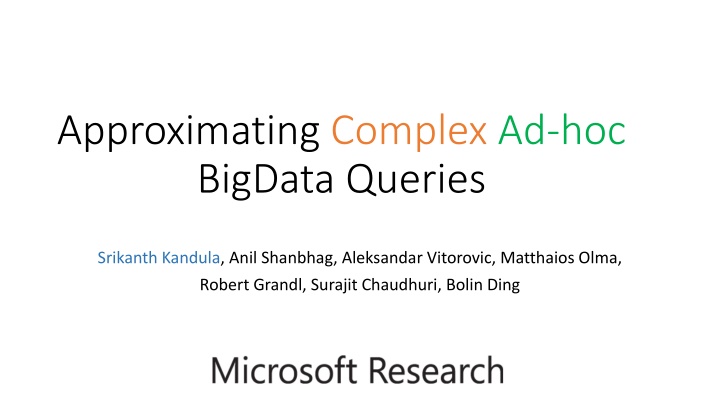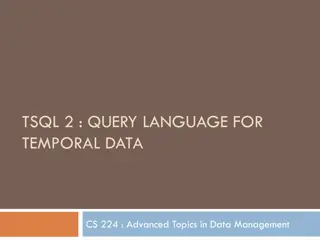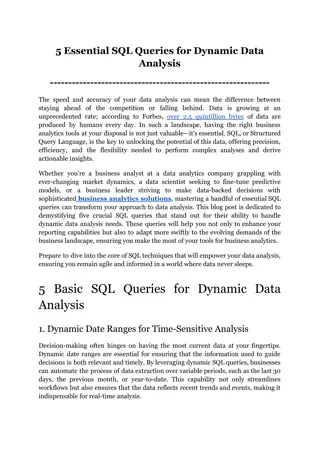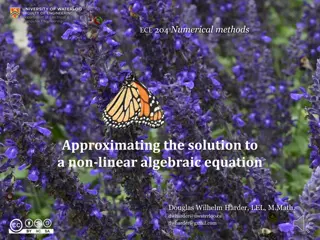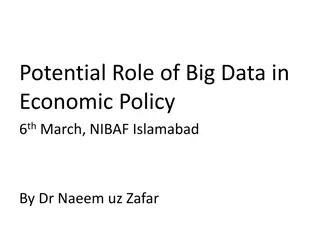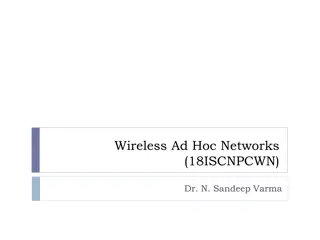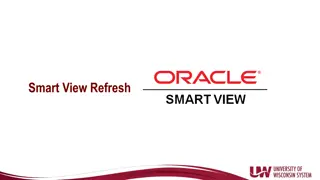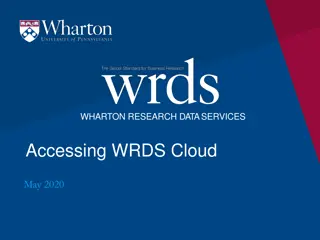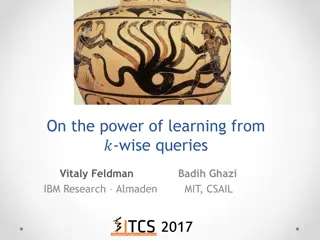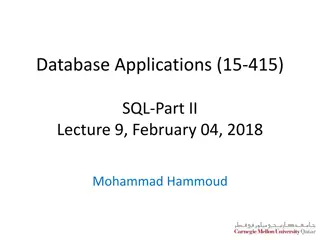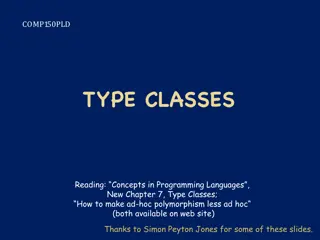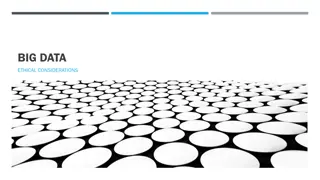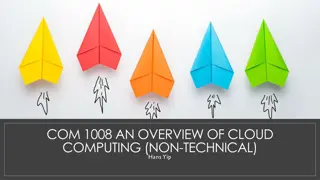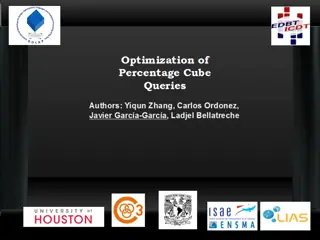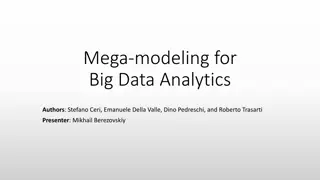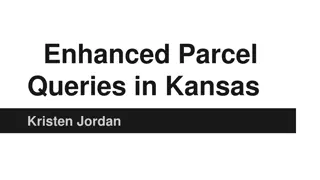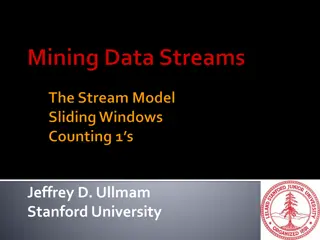Approximating Complex Ad-hoc Big Data Queries
Addressing challenges in approximating big data queries with minimal apriori overhead, this study explores techniques to improve accuracy and performance gains for complex ad-hoc queries. The research delves into methods such as optimally building samples, online aggregation, and computing synopses per column and table to enhance query cost reduction and efficiency.
Download Presentation

Please find below an Image/Link to download the presentation.
The content on the website is provided AS IS for your information and personal use only. It may not be sold, licensed, or shared on other websites without obtaining consent from the author.If you encounter any issues during the download, it is possible that the publisher has removed the file from their server.
You are allowed to download the files provided on this website for personal or commercial use, subject to the condition that they are used lawfully. All files are the property of their respective owners.
The content on the website is provided AS IS for your information and personal use only. It may not be sold, licensed, or shared on other websites without obtaining consent from the author.
E N D
Presentation Transcript
Approximating Complex Ad-hoc BigData Queries Srikanth Kandula, Anil Shanbhag, Aleksandar Vitorovic, Matthaios Olma, Robert Grandl, Surajit Chaudhuri, Bolin Ding
Motivation: Approximating Big-Data Queries Data-Analysis Clusters >105 servers Exabytes of data >106 queries/ day >70% avg. usage Data, Queries $ $ Results 1) Approximations can reduce query cost; even 2x is a big win 2) Queries are approximable Dashboards (aggregations over groups with predicates) ML jobs tolerate imprecision in early iterations
An example Can run 3X faster, reasonable accuracy **without** apriori {samples, indices} or pre-knowledge of query
Challenges in approximating big-data Build optimal Samples Prior approach 1 Precompute samples per input table Predict. Queries Data + Examine entire input at leisure offline online Plan Match Query Complex ad-hoc queries are hard to match to pre-existing sample Even otherwise, we see small gains and high storage costs 1) queries are diverse and use different inputs 2) non foreign-key joins
Challenges in approximating big-data Prior approach 2 Online aggregation: run the query until user is satisfied with answer + Zero apriori overhead But, prior work Only bernoulli sampling Costly to implement esp if out-of-memory and parallel plans (e.g., ripple join) ( Zipcode, AVG(Salary) needs stratification)
With minimal apriori overhead, can we approximate a large fraction of complex ad-hoc queries? (high accuracy and performance gains)
Compute synopses per {column, table} Our approach Data offline online Plans with samplers 1) Borrow the best of prior approaches [precompute] sophisticated stats on input [on-the-fly] add samplers to plan QO ++ Query but not fully online Minimal preparation: no samples, indices Robust to #datasets and ad-hoc queries. For complex queries, can sample after predicates and joins When many passes over data, gains are large 2) Bridge significant technical gaps
We bridge significant technical gaps in on-the-fly sampling Streaming Samplers Cost- and error-based selection of sampled plans
Samplers can be injected anywhere in parallel plan A sampler picks a subset of input rows Sampler In addition, 1) finish in one pass over data 2) append weight and adjust schema 3) use memory min(input, output) + Negligible overhead + Should not break vertex boundaries
Streaming Samplers SUM(ss_profit * w) SUM(ss_profit) ?? Uniform store sales item_sk, SUM(ss_profit*w) item_sk, SUM(ss_profit) Naively, memory required O(input) Idea: use heavy-hitter sketch (lossy counting) Trade-off: mem vs. data reduction ? ?,?, ????_?? ?????_?? store sales Distinct
Streaming Samplers SUM(ss_profit), SUM(ss_profit) / ?, COUNT(DISTINCTcustomer_sk) / ? COUNT(DISTINCTcustomer_sk) Sample after join has limited gains; esp. when parallel Imagine Universe ????????_?? ? ?, ????????_?? ? store sales ?, ????????_?? store returns Details Applicability ? ?,?:? ? ?? = 0 1) Not a uniform sample (higher variance, ) 2) Works for (multiple) equijoins 3) Careful reconciliation with stratification 4) Requires no co-ordination at runtime Pick p random fraction Cryptographically strong hash function 1 ?) (e.g., key xor mod-
accuracy New QO to reason about { } of sampled plans performance 1) How close is sampled aggregate to true val.? 2) Confidence intervals? 3) Miss groups? Treat samplers first-class in QO vs. Add samplers post-facto Method 1) Inject samplers before every select with aggregates 2) Cascade-style transformation rules (invariant: no worse error) Sampler has logical requirements ( what is needed to get good accuracy? ) Rules move samplers and optionally edit requirements 3) Costing decides which sampler if any to use [accuracy] support for average group after corrections [perf] data reduction (and saved work) due to sampler 4) Compensate for imperfect stats: large grace; {y, n} for p=0.1
i_color, d_year, SUM(ss_profit), COUNT(DISTINCTcustomer_sk) EXAMPLE ????_?? ????_?? ? ? ????????_?? itemdate ????????_?? store sales store returns catalog sales 1.Push to one input esp. if it is more work 2.Replace stratcols with join key; use sfm 3.Universe iff pushing to multiple join inputs 4. Ignore strat iff support is high 5. Need not strat on pred. cols; use ds 6. Add exchanges to reduce DOP
Analyzing accuracy of plans with samplers Prior analysis works only for uniform sampler, does not consider group-miss, is expensive We offer: Dominance between sampled plans: sufficient conditions that ensure no worse error Given expressions ?1, ?2 with same core; their outputs ?1, ?2; and ? is the answer w/o sampling,
A family of dominance rules that relate a sampled query A family of dominance rules that relate a sampled query A family of dominance rules that relate a sampled query expression to one that has one sampler at the root expression to one that has one sampler at the root expression to one that has one sampler at the root i_color, d_year, SUM(ss_profit), COUNT(DISTINCTcustomer_sk) i_color, d_year, SUM(ss_profit), COUNT(DISTINCTcustomer_sk) ?? dominates ????_?? ????????_?? ????_?? ????_?? ?? ????????_?? ????_?? ? ? ????????_?? ?? ?? ? ? ????????_?? sr item date cs sr ss cs item date ss We compute unbiased estimators & confidence-intervals in one* pass on data
We bridge significant technical gaps in on-the-fly sampling Streaming Samplers Cost- and error-based selection of sampled plans Contributions 1) {Partitionable, One-pass, Bounded memory} implementations of samplers 2) Use join(universe samples) universe sample (join) to answer general queries w joins 3) QO + Samplers: transformation rules and costing; new rules enhance coverage & gains 4) New accuracy analysis, dominance: more general; group-miss; one effective pass
System and Evaluation Functioning prototype deployed on Cosmos/ SCOPE clusters Workloads TPC-DS at scale factor 500 (also TPC-H and user scripts) Compare with Baseline without samplers Blink-DB (assuming perfect matching)
Poor coverage Small gains High storage costs Apriori sampling has Apriori sampling On TPC-DS, results for BlinkDB Optimal Sample Construction Query Dataset Data Samples offline online Plan Sample Selection Query
On-the-fly sampling Collect Input stats. Data Stats offline online Plans with samplers ASALQA Query Query with samplers on all data TPC-DS 500GB dataset Experiments on cosmos09 Baseline is production Scope
Summary Approximating complex ad-hoc queries in bigdata clusters Streaming Samplers Cost- and error-based selection of sampled plans Contributions 1) {Partitionable, One-pass, Bounded memory} implementations of samplers 2) Use join(universe samples) universe sample (join) to answer general queries w joins 3) QO + Samplers: transformation rules and costing; new rules enhance coverage & gains 4) New accuracy analysis, dominance: more general; group-miss; one effective pass TPC-DS 500GB dataset Experiments on cosmos; vs. prod. [Perf] 50% of the jobs have 2X lower cost (10% are 4X lower) [Error] 80% of aggregates in 10% error (90% in 20% error) Results Quickr project Msr-Quickr@Microsoft.Com Working towards a release.
